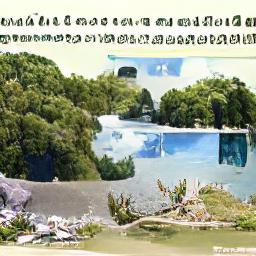While in Messina, @hugi and I had several conversation about how AvantGriders might “dampen” market mechanisms. As he sees it, the people who founded Avant Grid believed that economies such as those of Libria and of pre-Sundering times are over-optimizing, and as such open the way for fragility.
We spent some time imagining game forms in bargaining, but then I was reminded of the part of Debt where David Graeber describes how the early Islamic Caliphate conquered several trading cities on the banks of the Indian Ocean. The Caliphate’s soldiers, however, did not feel at ease in the cities, and remained encamped on their outskirts for a long time. During the Abbasid dynasty, (starting in the 9th century) this resulted in erecting a barrier between state and society. “The state” was heavily armed conquerors in their encampments first, palaces later; “society” was everyone else. On the society side, religious scholars (ulema) moved to ban the most hateful practices leading to peonage:
Slavery through kidnapping, judicial punishment, debt, and the exposure or sale of children, even through the voluntary sale of one’s own person—all were forbidden, or rendered unenforceable. Likewise with all the other forms of debt peonage that had loomed over the heads of poor Middle Eastern farmers and their families since the dawn of recorded history. Finally, Islam strictly forbade usury, which it interpreted to mean any arrangement in which money or a commodity was lent at interest, for any purpose whatsoever.
The Caliphate refused to get involved in economic matters beyond exacting tribute. It refused also to enforce contracts: if your business partner cut and ran with the money, you would find no sympathy with the Caliph. No bailiffs would be dispatched.
That led to an economy based on mutual trust – which is what @hugi wants for Avant Grid.
The remarkable thing here is the tacit recognition that, in a credit economy that operates largely without state mechanisms of enforcement (without police to arrest those who commit fraud, or bailiffs to seize a debtor’s property), a significant part of the value of a promissory note is indeed the good name of the signatory. As Pierre Bourdieu was later to point out in describing a similar economy of trust in contemporary Algeria: it’s quite possible to turn honor into money, almost impossible to convert money into honor.
And it’s not like this did not work. In fact, the networks of trust that emerged in this era had both economic and cultural success:
Neither did the prohibitions against usury—which for the most part were scrupulously enforced, even in the case of commercial loans—in any sense mitigate against the growth of commerce, or even the development of complex credit instruments.69 To the contrary, the early centuries of the Caliphate saw an immediate efflorescence in both. Profits were still possible because Islamic jurists were careful to allow for certain service fees, and other considerations—notably, allowing goods bought on credit to be priced slightly higher than those bought for cash—that ensured that bankers and traders still had an incentive to provide credit services. Still, these incentives were never enough to allow banking to become a full-time occupation: instead, almost any merchant operating on a sufficiently large scale could be expected to combine banking with a host of other moneymaking activities.
Maybe AvantGrid’s economy could incorporate elements of Islamic economic culture? I particularly like the “partnership of the penniless” (sharika al-mafalis).
It comes about when two people form a partnership without any capital in order to buy on credit and then sell. It is designated by this name partnership of good reputations because their capital consists of their status and good reputations; for credit is extended only to him who has a good reputation among people.

